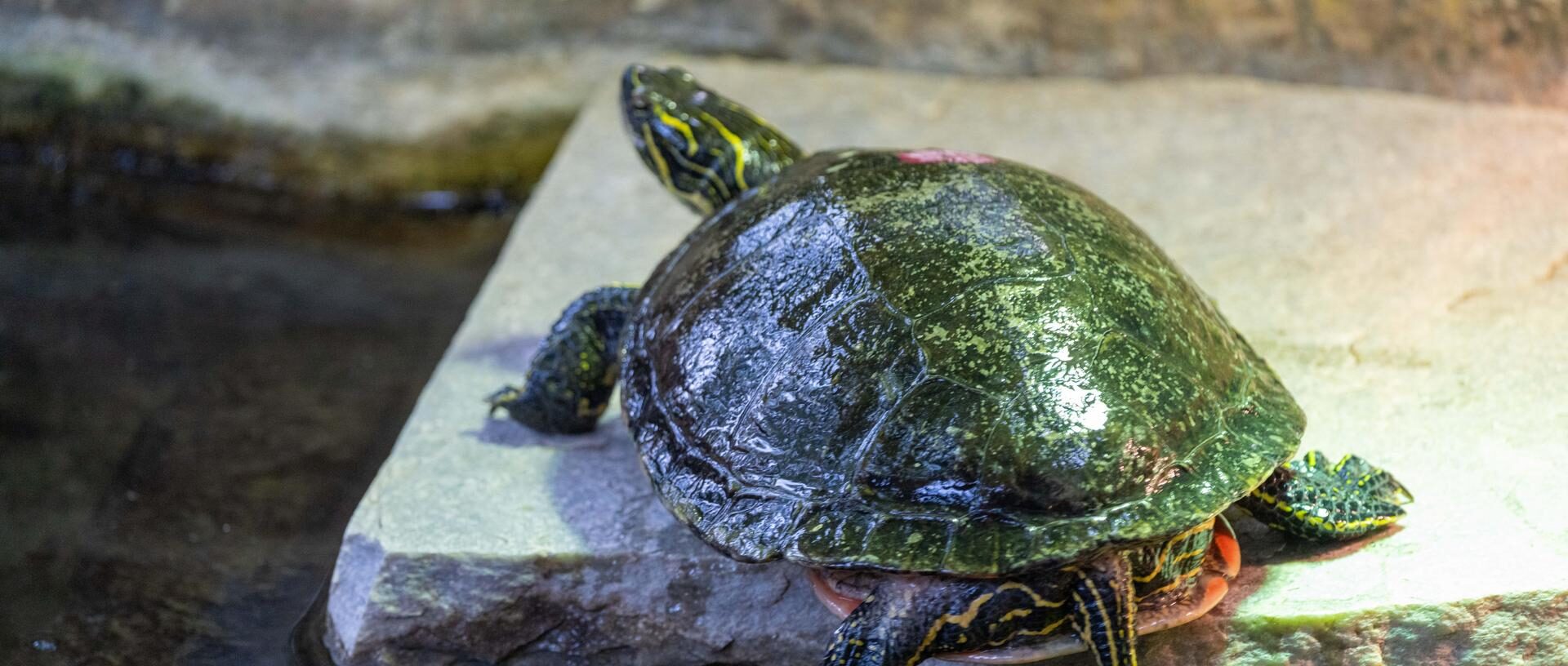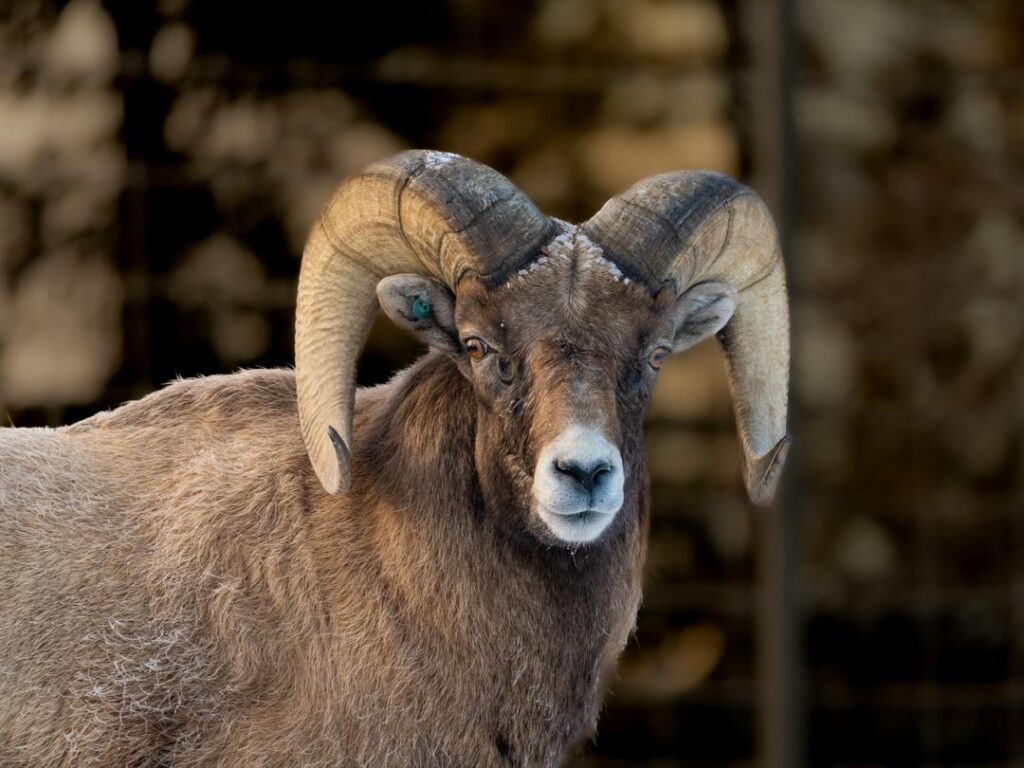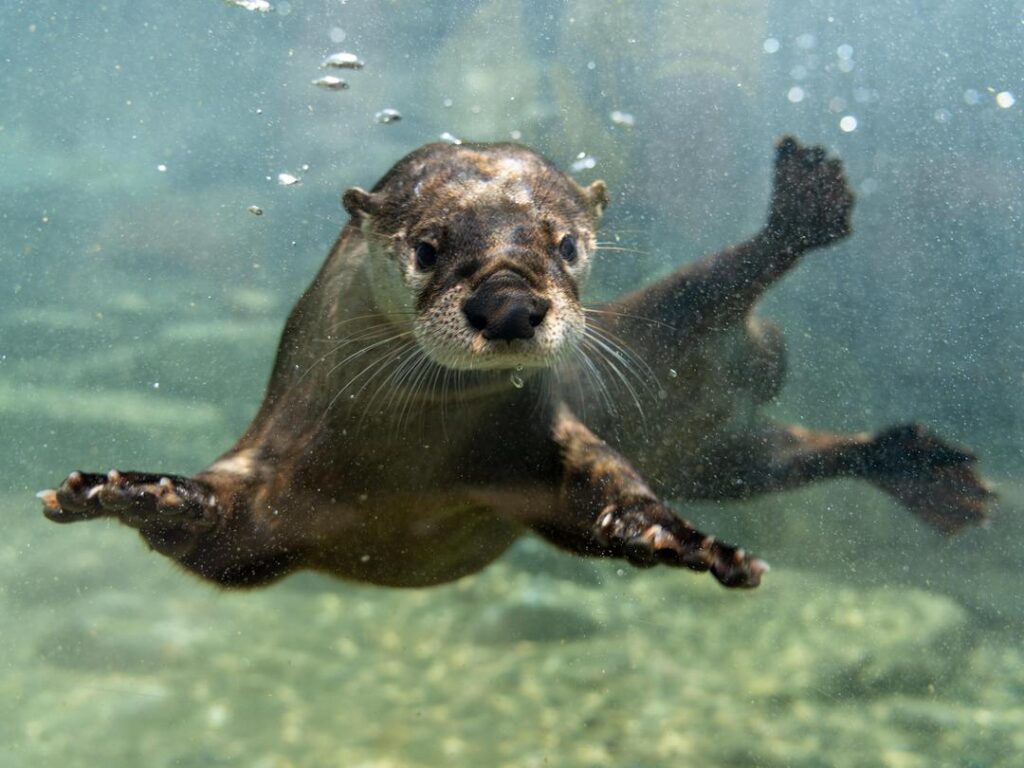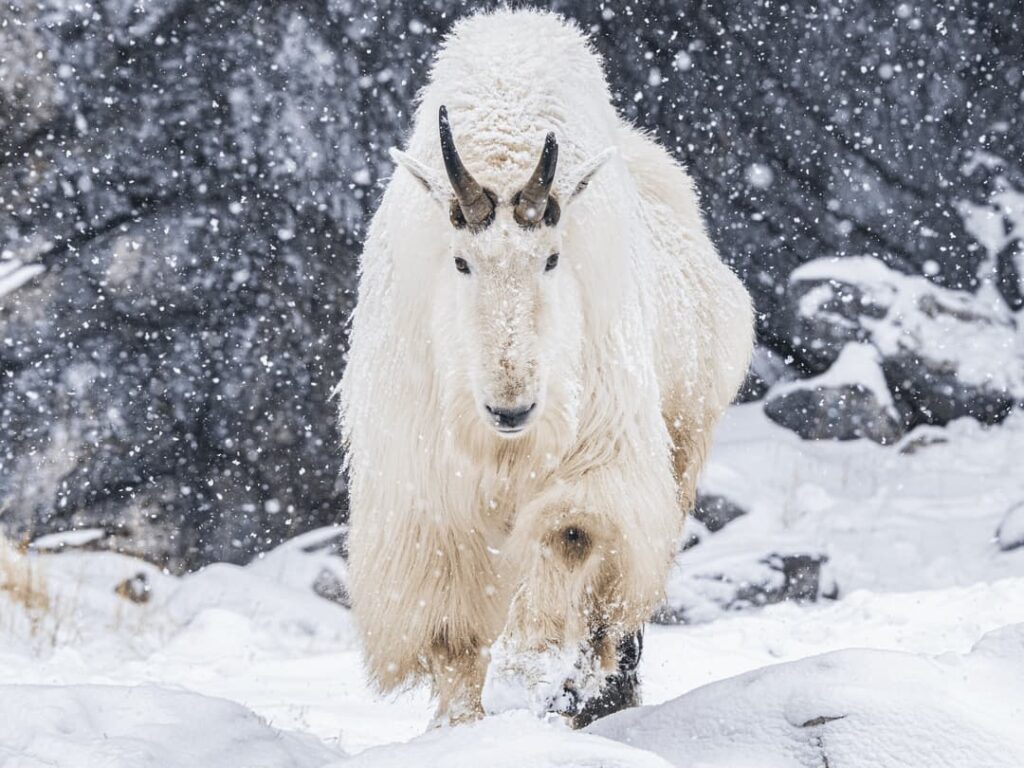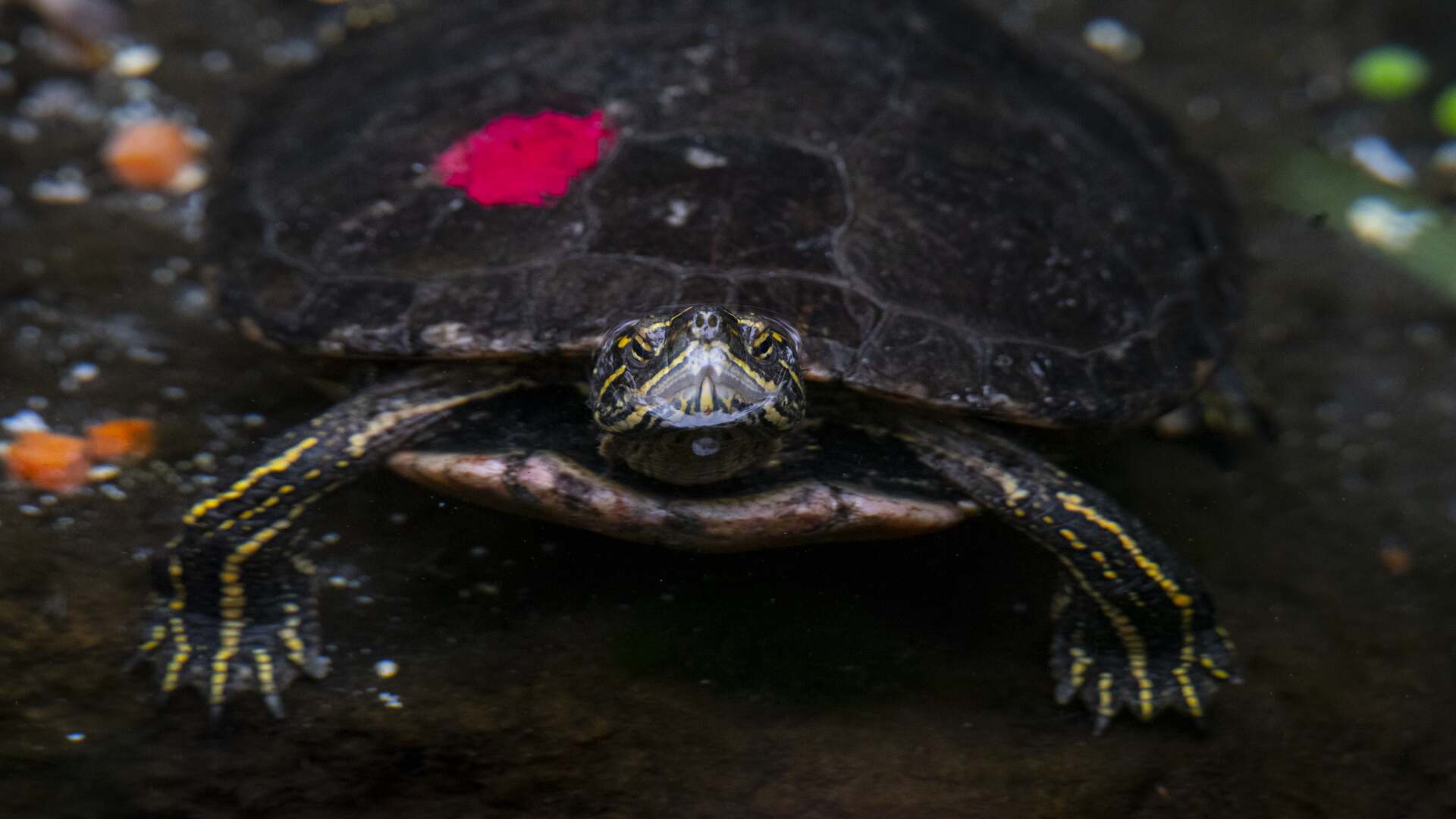
Western Painted Turtles
Bright colours swimming through fresh water
The western painted turtle is the largest subspecies of painted turtle, with a shell that can be 10 inches long. Identified by the red and orange stripes on their shell and body, and yellow stripes on the head and neck, these turtles make their homes in slow-moving water with soft, muddy bottoms and vegetation, such as marshes, ponds, creeks, and lakes. In the wild, they overwinter in bodies of water, but here at the zoo, they spend the colder months in our Administration building.
- IUCN Red List Status: Least Concern (at relatively low risk of extinction)
- Type: Reptile
- Habitat: Bodies of freshwater from southern Canada to northern Mexico
- Diet: Omnivore – fish, plants, and invertebrates
- Size: 5 to 10 inches long
- Weight: 800 to 1400 grams
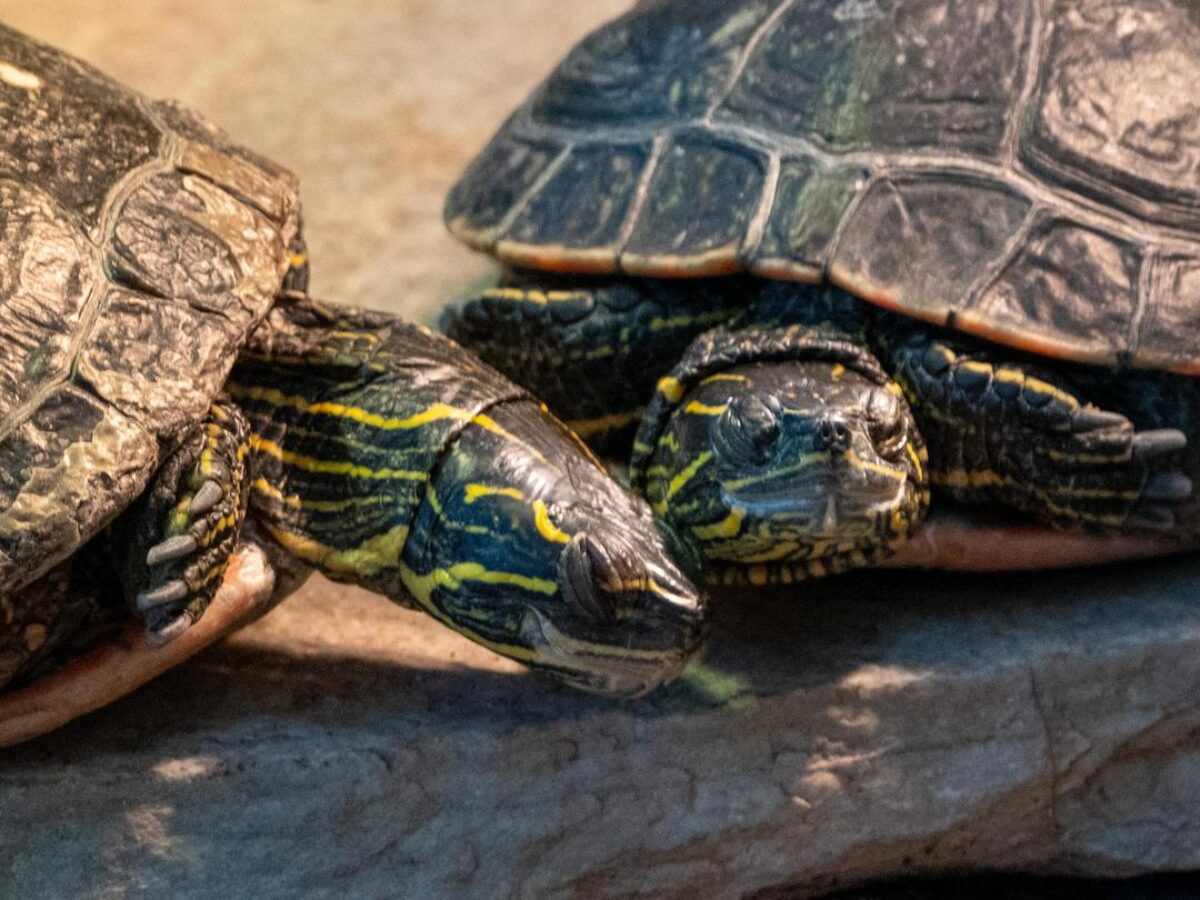
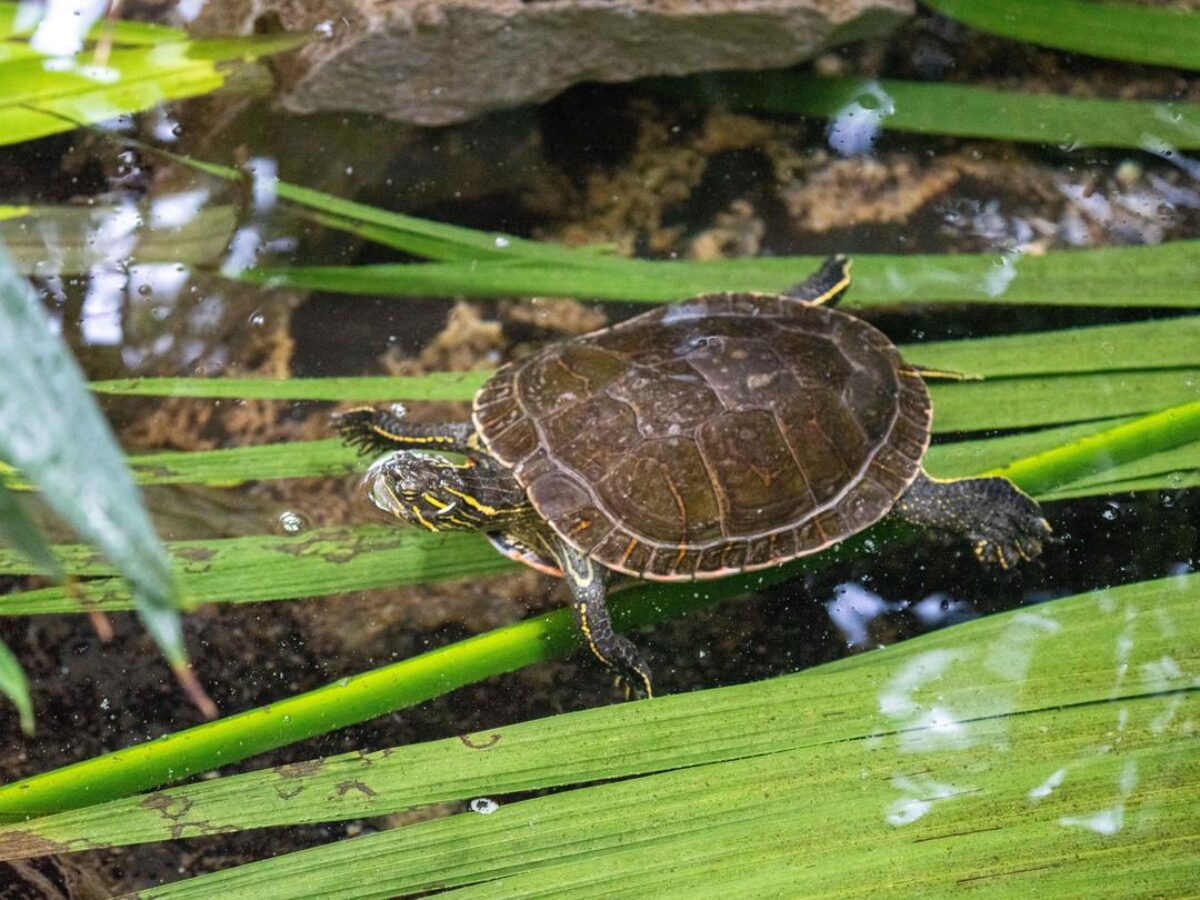
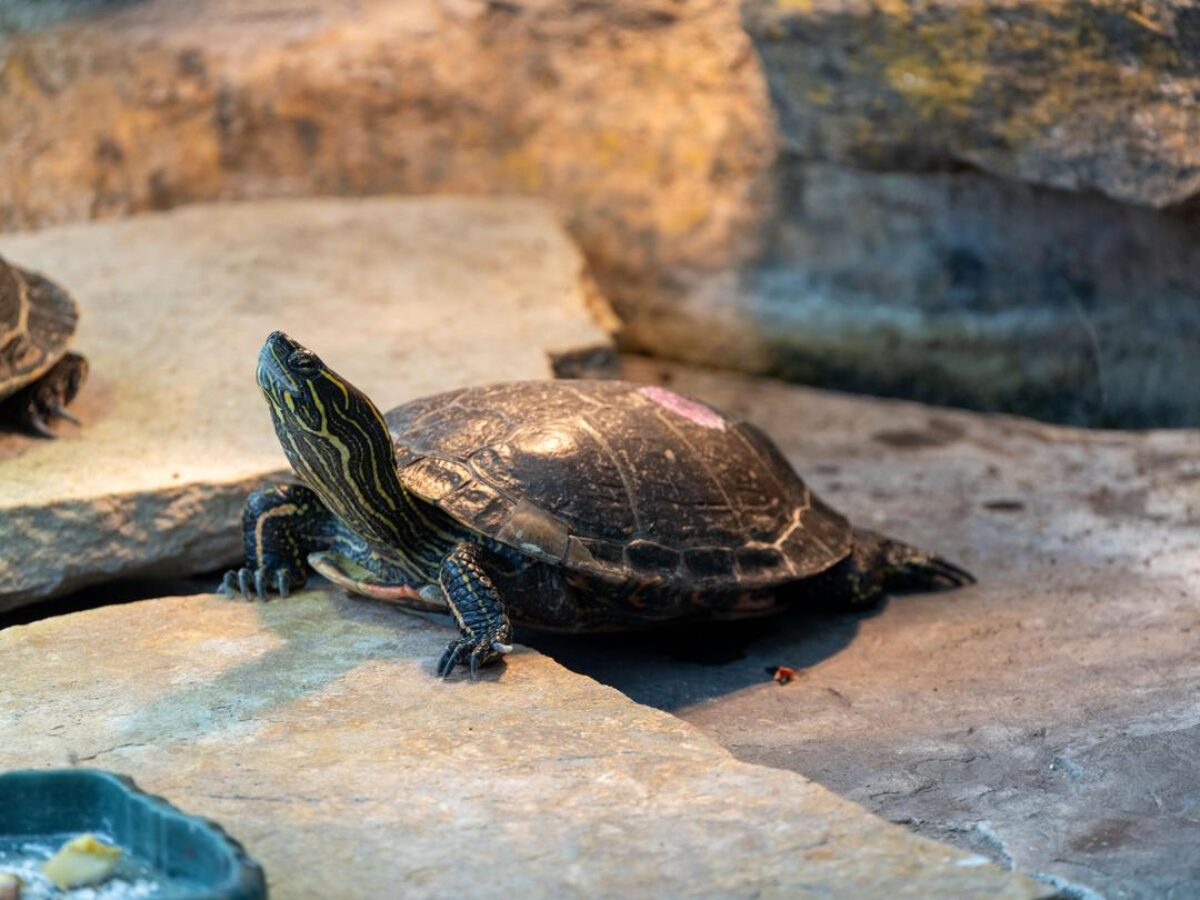
facts about our animals
Fun Facts about Western Painted Turtles
Turtles shed their scutes (shell scales) on their shells as they grow, which allows their shells to grow with them.
The sex of a turtle is determined by the temperature of the egg, with warmer temperatures producing females and cooler temperatures producing males.
Western painted turtles can survive temperatures as low as –10 degrees Celsius in their nests.
Being cold-blooded, turtles must regulate their temperature by basking in the sun.
The western painted turtle is the only turtle native to Alberta.
Turtles don’t have teeth, but have horned ridges on their upper and lower jaws which they chew with.
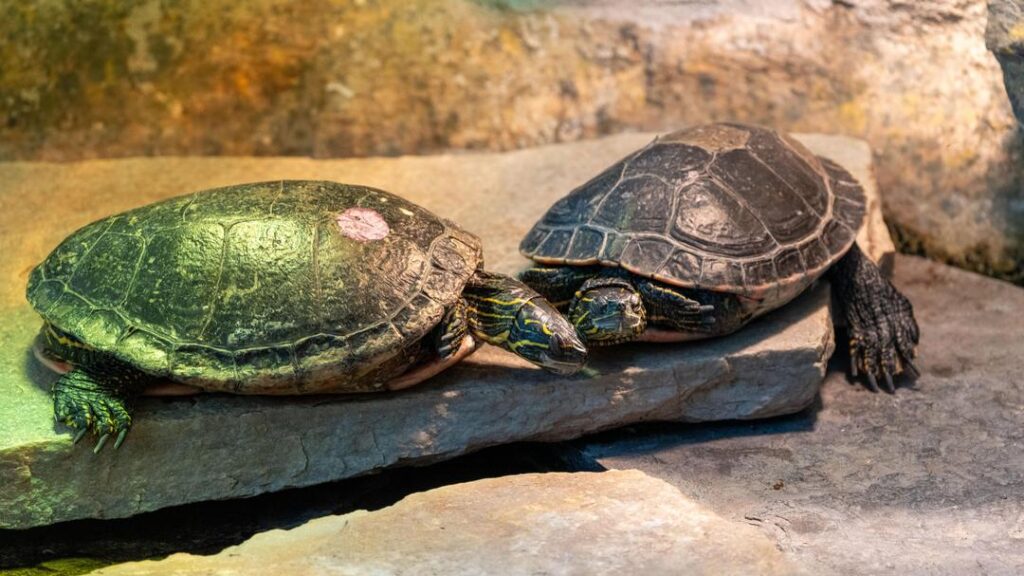
Donate
How you can help
Your donation makes a world of difference. With support for animal care, conservation programs, and education, you’re making the world wilder.
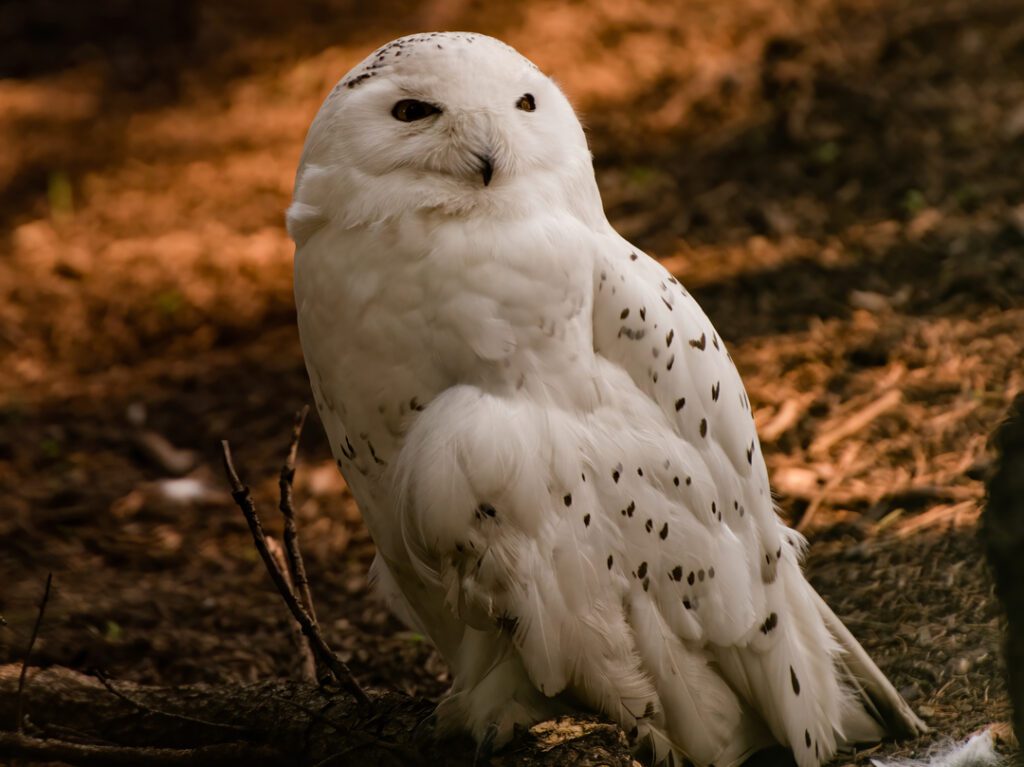
Plan Your Visit
Get close to wildlife
It’s time to make some memories. Here’s everything you need to know to plan an unforgettable day at the zoo.

